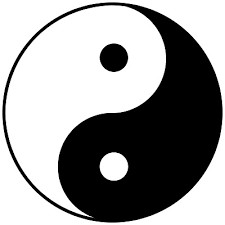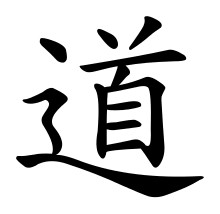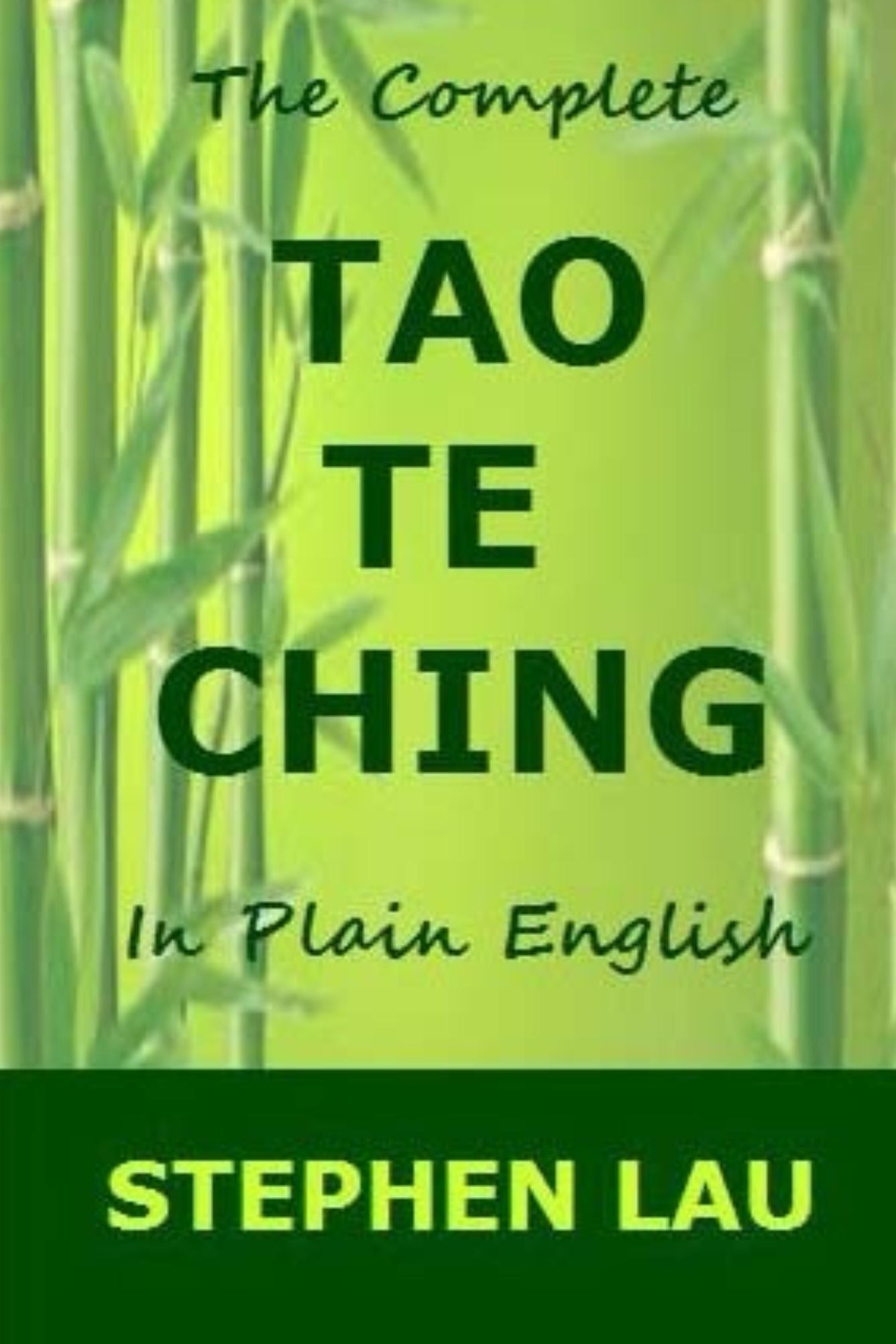



The TAO in Everyday Life


STEPHEN LAU




The TAO is in every aspect of life: growing up; receiving education; seeking careers; getting married; raising children; connecting with others; staying healthy; growing old; and facing life challenges.

TAO: THE WAY TO BIBLICAL WISDOM
All About . . . .
This 188-page book is about TAO, the 2600-year-old Chinese wisdom advocated by Lao Tzu, the author of the world-famous classic Tao Te Ching, which is one of the most translated books in world literature.
The interpretations of Tao Te Ching are as many as its translations. Each author is, in fact, looking at Lao Tzu's immortal classic from his or her own perspective, and this is also one of the many reasons why Tao Te Ching is eye-opening and thought-stimulating. The Bible and Tao Te Ching are among the most translated and extensively read books of all time, and for a good reason: one is about God's wisdom, and the other is about the profound human wisdom.
This book is based on the author's belief that Lao Tzu's masterpiece is about the Creator of the universe, and that with true human wisdom man sees not only the manifestations but also the mysteries of His creation.
This book is about true human wisdom without the "conditioned" mindset of contemporary wisdom. Without the "reverse" mindset of Lao Tzu, man may indeed have difficulties in understanding the wisdom of God expressed in the Bible.
Tao wisdom holds the key to human understanding of Biblical wisdom and the nature of things.
The Book Outline . . . .
INTRODUCTION
PART ONE: The Whys
Why wisdom?
Why the Bible?
Why Tao?
Why less for more?
Why human wisdom?
Why Lao Tzu?
PART TWO: TAO TE CHING
The author's own translations of the 81 chapters of Lao Tzu's immortal classic
Tao Te Ching, with each chapter followed by some selected Bible verses for further reflection.
PART THREE: UNDERSTANDING THE WAY
The essentials of Tao
Humility and ego-self
No expectation, no pain
No over-doing, no stress
Living in the present
Letting go
The practice of Tao
Total awareness
Intense presence
Simplicity in life
Focusing on others
PART FOUR: THE WAY TO BIBLICAL WISDOM
The role of the human mind
The beginning of spirituality
Believe to understand
Seeking God
The Way to Biblical wisdom
Intent to seek
Seeking Biblical knowledge
Growing in the knowledge
Awakening awareness
Deepening the relationship
The above is what this book is all about. Click here to get your copy from AMAZON.
All About . . . .
This 188-page book is about TAO, the 2600-year-old Chinese wisdom advocated by Lao Tzu, the author of the world-famous classic Tao Te Ching, which is one of the most translated books in world literature.
The interpretations of Tao Te Ching are as many as its translations. Each author is, in fact, looking at Lao Tzu's immortal classic from his or her own perspective, and this is also one of the many reasons why Tao Te Ching is eye-opening and thought-stimulating. The Bible and Tao Te Ching are among the most translated and extensively read books of all time, and for a good reason: one is about God's wisdom, and the other is about the profound human wisdom.
This book is based on the author's belief that Lao Tzu's masterpiece is about the Creator of the universe, and that with true human wisdom man sees not only the manifestations but also the mysteries of His creation.
This book is about true human wisdom without the "conditioned" mindset of contemporary wisdom. Without the "reverse" mindset of Lao Tzu, man may indeed have difficulties in understanding the wisdom of God expressed in the Bible.
Tao wisdom holds the key to human understanding of Biblical wisdom and the nature of things.
The Book Outline . . . .
INTRODUCTION
PART ONE: The Whys
Why wisdom?
Why the Bible?
Why Tao?
Why less for more?
Why human wisdom?
Why Lao Tzu?
PART TWO: TAO TE CHING
The author's own translations of the 81 chapters of Lao Tzu's immortal classic
Tao Te Ching, with each chapter followed by some selected Bible verses for further reflection.
PART THREE: UNDERSTANDING THE WAY
The essentials of Tao
Humility and ego-self
No expectation, no pain
No over-doing, no stress
Living in the present
Letting go
The practice of Tao
Total awareness
Intense presence
Simplicity in life
Focusing on others
PART FOUR: THE WAY TO BIBLICAL WISDOM
The role of the human mind
The beginning of spirituality
Believe to understand
Seeking God
The Way to Biblical wisdom
Intent to seek
Seeking Biblical knowledge
Growing in the knowledge
Awakening awareness
Deepening the relationship
The above is what this book is all about. Click here to get your copy from AMAZON.

An excerpt from the book . . .
BELIEVE IN ORDER TO UNDERSTAND
According to St. Augustine, the Bishop of Hippo (354-430 A.D.), in life there are certain things we do not believe unless we understand them, and there are other things that we do not understand unless we believe them. To St. Augustine, faith is not opposed to understanding, nor is it independent of understanding. His famous “faith seeking understanding” is an act of believing first, without which unbelief closes the door to further understanding.
St. Anselm of Canterbury, a well-known Christian philosopher and theologian of the eleventh century, echoed St. Augustine’s statement in his famous motto “I do not seek to understand in order that I may believe, but I believe in order to understand.”
“By faith we understand that the universe was formed at God’s command, so that what is seen was not made out of what was visible.” (Hebrews 11: 3)
Accordingly, to begin the spiritual journey of seeking God’s wisdom, we must, first and foremost, have faith seeking knowledge to understand God.
How TAO Wisdom May Help
According to Lao Tzu, the mysteries of the universe are indefinable and inexpressible. The human mind is meant to see only the manifestations of the things created, but not the mysteries of God’s creations.
“As one, it is unbroken thread with neither a beginning nor an end.
It returns to nothingness: invisible, inaudible, and intangible.
It is the indefinable, the intangible, and the unimaginable.
Stand before it, and there is no beginning.
Follow it, and there is no end.
Only by its grace can we discover how things have been and will be.
This is the essence of the Creator: invisible, inaudible, and intangible.”
(Chapter 14, Tao Te Ching)
To Lao Tzu, seeing is not believing, but believing is the beginning of seeing.
“The more we look, the less we see.
The more we hear, the less we listen.
The more we crave, the crazier we become.”
(Chapter 12, Tao Te Ching)
“When a wise man hears of the Creator,
he immediately begins to do some soul-searching.
When an average man hears of the Creator,
he half believes him, and half doubts him.
When a foolish man hears of the Creator,
he laughs out loud.
If he did not laugh,
there would be no Creator.”
(Chapter 41, Tao Te Ching)
What is materialistic is separate from what is spiritualistic. Therefore, we should always look for the invisible and the intangible within.
“The spokes and the hub are the visible parts of a wheel.
Clay is the visible material of a pot, which is useful because it contains.
Walls, doors, and windows are visible parts of a house.”
(Chapter 11, Tao Te Ching)
TAO wisdom is to focus on the Creator, instead of the things created or how they were created.
“Life lives itself in us, when we focus on the Creator.
From that focal point, around which all of life revolves.
We watch everything come and go,
with no judgment, no preference.
Everything that is, was, or ever will be,
will return to its origin: the Creator.”
(Chapter 16, Tao Te Ching)
To Lao Tzu, human focus should be on the Creator, instead of on the search for an explanation of all the unfathomed truths.
“Look, it is invisible.
Listen, it is inaudible.
Grab, it is intangible.
These three characteristics are indefinable:
Therefore, they are joined as one, just like the Holy Trinity.”
(Chapter 14, Tao Te Ching)
Seeking God
With faith, we begin to seek God, which means looking for His presence. God is omnipresent; He is present in everything and in everyone.
“and teaching them to obey everything I have commanded you. And surely I am with you always, to the very end of the age.’” (Matthew 28: 20)
However, there are times, due to human frailty and neglect, God’s presence seems not only distant but also elusive. Even Pope Benedict XVI, in his emotional farewell speech in February 2013 to tens of thousands of faithful in St. Peter’s Square, said there were times during his eight-year papacy “when it seemed that the Lord was sleeping.” For that reason, we should earnestly set our minds and hearts on seeking God, lest His presence become unreal and unmanifested.
“Now devote your heart and soul to seeking the Lord your God.” (1 Chronicles 22: 19)
“Seek the Lord while he may be found;
call on him while he is near.” (Isaiah 55: 6)
“Since, then, you have been raised with Christ, set your hearts on things above, where Christ is, seated at the right hand of God. Set your minds on things above, not on earthly things.” (Colossians 3: 1-2)
Given that God Himself has put within us the human desire to know Him, we will find Him in His Word -- the Bible.
TAO: The Way to Biblical Wisdom
BELIEVE IN ORDER TO UNDERSTAND
According to St. Augustine, the Bishop of Hippo (354-430 A.D.), in life there are certain things we do not believe unless we understand them, and there are other things that we do not understand unless we believe them. To St. Augustine, faith is not opposed to understanding, nor is it independent of understanding. His famous “faith seeking understanding” is an act of believing first, without which unbelief closes the door to further understanding.
St. Anselm of Canterbury, a well-known Christian philosopher and theologian of the eleventh century, echoed St. Augustine’s statement in his famous motto “I do not seek to understand in order that I may believe, but I believe in order to understand.”
“By faith we understand that the universe was formed at God’s command, so that what is seen was not made out of what was visible.” (Hebrews 11: 3)
Accordingly, to begin the spiritual journey of seeking God’s wisdom, we must, first and foremost, have faith seeking knowledge to understand God.
How TAO Wisdom May Help
According to Lao Tzu, the mysteries of the universe are indefinable and inexpressible. The human mind is meant to see only the manifestations of the things created, but not the mysteries of God’s creations.
“As one, it is unbroken thread with neither a beginning nor an end.
It returns to nothingness: invisible, inaudible, and intangible.
It is the indefinable, the intangible, and the unimaginable.
Stand before it, and there is no beginning.
Follow it, and there is no end.
Only by its grace can we discover how things have been and will be.
This is the essence of the Creator: invisible, inaudible, and intangible.”
(Chapter 14, Tao Te Ching)
To Lao Tzu, seeing is not believing, but believing is the beginning of seeing.
“The more we look, the less we see.
The more we hear, the less we listen.
The more we crave, the crazier we become.”
(Chapter 12, Tao Te Ching)
“When a wise man hears of the Creator,
he immediately begins to do some soul-searching.
When an average man hears of the Creator,
he half believes him, and half doubts him.
When a foolish man hears of the Creator,
he laughs out loud.
If he did not laugh,
there would be no Creator.”
(Chapter 41, Tao Te Ching)
What is materialistic is separate from what is spiritualistic. Therefore, we should always look for the invisible and the intangible within.
“The spokes and the hub are the visible parts of a wheel.
Clay is the visible material of a pot, which is useful because it contains.
Walls, doors, and windows are visible parts of a house.”
(Chapter 11, Tao Te Ching)
TAO wisdom is to focus on the Creator, instead of the things created or how they were created.
“Life lives itself in us, when we focus on the Creator.
From that focal point, around which all of life revolves.
We watch everything come and go,
with no judgment, no preference.
Everything that is, was, or ever will be,
will return to its origin: the Creator.”
(Chapter 16, Tao Te Ching)
To Lao Tzu, human focus should be on the Creator, instead of on the search for an explanation of all the unfathomed truths.
“Look, it is invisible.
Listen, it is inaudible.
Grab, it is intangible.
These three characteristics are indefinable:
Therefore, they are joined as one, just like the Holy Trinity.”
(Chapter 14, Tao Te Ching)
Seeking God
With faith, we begin to seek God, which means looking for His presence. God is omnipresent; He is present in everything and in everyone.
“and teaching them to obey everything I have commanded you. And surely I am with you always, to the very end of the age.’” (Matthew 28: 20)
However, there are times, due to human frailty and neglect, God’s presence seems not only distant but also elusive. Even Pope Benedict XVI, in his emotional farewell speech in February 2013 to tens of thousands of faithful in St. Peter’s Square, said there were times during his eight-year papacy “when it seemed that the Lord was sleeping.” For that reason, we should earnestly set our minds and hearts on seeking God, lest His presence become unreal and unmanifested.
“Now devote your heart and soul to seeking the Lord your God.” (1 Chronicles 22: 19)
“Seek the Lord while he may be found;
call on him while he is near.” (Isaiah 55: 6)
“Since, then, you have been raised with Christ, set your hearts on things above, where Christ is, seated at the right hand of God. Set your minds on things above, not on earthly things.” (Colossians 3: 1-2)
Given that God Himself has put within us the human desire to know Him, we will find Him in His Word -- the Bible.
TAO: The Way to Biblical Wisdom


